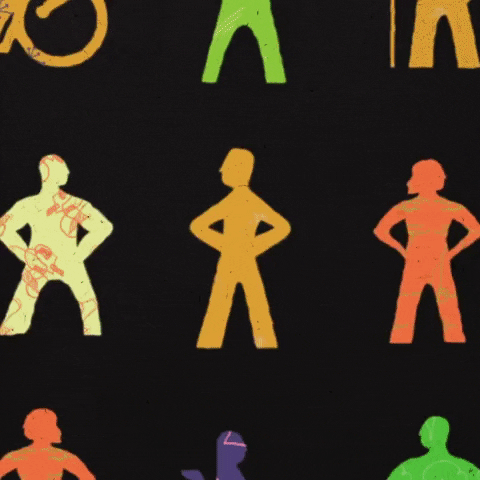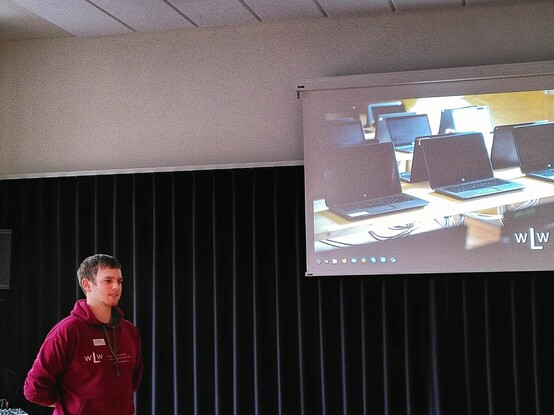All projects and challenges as of 06.05.2024 05:02.
Download as CSV file or Data Package.

#asktj
Ask Ti Jean
Data safety on the Road
During the Rethink Journalism hackathon in Basel, we brainstormed how to help participants of similar future events to get some help with Information Security, and receive recommendations of materials - as well as more targeted advice about computing safety.
Photo credits: Kitty in the city
💸 Donate to digitale-gesellschaft.ch who presented a position paper and related news at #dinacon22
See also:
https://github.com/enaqx/awesome-pentest
Background
At #rejoha22 we discussed concerns about journalists being targets of cyber-infiltration. We started an open pad, in which we suggest developing a toolkit: so that, even with minimal preparation, the infosec resilience of your community can be slightly improved - one hackathon at a time. The idea was further developed at the DINAcon HACKnight and other community meetings.
We originally called the project "Ask Jack", but out of respect for Jack Schofield, the Guardian’s former computer editor and long-running author of the Ask Jack advice column, we have renamed it ASK TI JEAN. Why? Ti Jean (little Jean) was a childhood nickname of Jack Kerouak - a great American novelist of French-Canadian ancestry, who was born 100 years ago and had aspirations to be a journalist. One of his most famous works is On the Road, which happens to share acronyms with Off the Record (OTR), a cryptographic protocol worth knowing.
Man in the Middle
Is not Worried
He knows his Karma
Is not buried
But his Karma,
Unknown to him,
May end —
-- Mexico City Blues by Jack Kerouak

crab.fit
Enter your availability to find a time that works for everyone!
We are using crab.fit to plan our DINAcon HACKnight meetups this year. It takes an interesting approach to collect personal preference in a data-protection-conformant way, and presents an original interface to enter and visualize group preferences. Despite being a small project, we found it reliable and useful for planning the HACKnight.
Donate: PayPal
{ hacknight challenges }
What tools do you use for planning meetings for your open initiative? Learn about some of the open source alternatives. Set up a plan for your next code jam, footy match, or Jass night at https://crab.fit
Consider setting up your own crab.fit instance on a free Google Cloud trial. Let the developers know how straightforward the process is, if anything is lacking in the documentation. Become a translator or make a donation.
See the instructions below to deploy and contribute to the open source project. Check out for example issue #143 that we are already discussing with crab.fit devs.

Data Package as a Service
Make open data small, self-published, and actionable
Open-data-by-default web applications like Flask-based CKAN or dribdat (that runs this site), Django-based SDPP, search engines like OpenSearch, etc., offer full-text search of their content and other APIs as a standard feature. For quickly sharing single datasets or developing 'single page applications' (SPAs) or visualizations, using a large backend application like this may be excessive.
Rationale
I'm supporting Portal.js and Livemark, which accomplish this very well - but sometimes want something even simpler and more integrated in my data stack of Python and Pandas. There are portal previews, linked data endpoints, and wonderful tools like Datasette to dive into a resource, but this might not be ideal for tinkering with data in code. Providing data services through a statically-generated site like JKAN or Datacentral is another cheap and cheerful option. You may already be working on a data science notebook in Jupyter, R Shiny or Observable, but having issues preparing your data on your own.
While working with Frictionless Data (* a global initiative to improve the way quality open data is crowdsourced) - I often wished that there was a way to put a quick API around a Data Package. On top of it, a user interface ..or a data science notebook ..or a natural language interface could be built. The proposed project DaatS is a service in Python and Pandas, which instantly turns a Data Package into an API.
The idea of connecting this project to workflows would be to think of this API-fication of a dataset as a data transformation step, something a user might want to add with a couple of clicks to their data collection in order to benefit from Frictionless Data tools and other components in the open data ecosystem.
Example

You can see the idea in action, combined with Wikidata, as part of a recent project: Living Herbarium (GLAMhack 2022). Another example, involving data scraping automation, is Baumkataster.
{ hacknight challenges }
Create a Data Package. It might be your first or your 99th. It is easy and fun to scrape some data off the web and put some shiny wrapping and "nutritional" guidance around it. Ask @loleg if you need some help here, or see this or this detailed guide.
Use the DaatS template to add a repo with boilerplate code on your GitHub account. Or just download the repository to your local machine. Follow the README to install the packages, and drop in your datapackage.json and CSV dataset. Use your browser or an API testing tool to run some queries, and you should see it paginating and searching your data.
Write a converter to patch your DaatS service into a no-code workflow. This could be a Proxeus node, a Node-RED, an Airtable or Slack workflow step, a GitHub Action, etc. Whatever would potentially scratch your own itch. Make it super easy for users to connect a dataset and invoke search queries or even statistical / data science functions as embedded in their process.

eBau
Electronic building permit application for swiss cantons
Thanks to the eBau team for presenting a lightning talk and running a stand at DINAcon 2022.
Thanks also to Giger Energy and Solargenossenschaft Region Biel for the process inputs on the design of the eBau portal during a HACKnights meetup.
While the eBau and Caluna projects currently are not fundraising online, we can support the Django REST framework which the project depends on the backend, as well as the frontend framework Ember.js which is on Open Collective.
See also:
https://hacknight.dinacon.ch/project/19
{ hacknight challenges }
Log into the eBau portal of your canton and try to create a draft submission. Get a feeling for the platform and think about whether it helps you to complete a complex application process with the authorities.
Read through the documentation of the project, learn about the software architecture and political process behind it. Contact the team with any suggestions or improvement requests through GitHub or e-mail.
Deploy the project locally, or get started as a developer by installing the Caluma project on your machine. See if there are any open issues you could contribute to, help with a translation, etc., on the open source repository.

OGC API & STAC
Test a Proof of Concept app from MeteoSwiss
In a joint project of swisstopo and MeteoSwiss, an open interface for accessing ten MeteoSwiss products was provided. Selected data can be freely obtained via STAC-API and OGC API FEATURES for test purposes during the test period. The goal of the prototype is, among other things, to obtain feedback from users via online survey.
https://twitter.com/swiss_geoportal/status/1589889313239887872
The PoC will run until the end of November 2022. We are happy to support open initiatives like this as part of the DINAcon HACKnights and upcoming events like the GovTech Hackathon.
Photo above: OGC Sprint Recap by Chris Holmes.
See also:
https://hacknight.dinacon.ch/project/9
{ hacknight challenges }
Start with the online tutorial (GitHub) and run some example queries in your web browser. Familiarize yourself with the context of this dataset, and log into GitHub so you can ask questions & share feedback.
Learn to use APIs implementing the STAC API Specification with the STAC browser, where you can already connect to geodata repositories around the world. Use the QGIS plugin if you would like to explore the data in an open source desktop GIS tool. See also the QGIS-OAFeat interface in the tutorial.
Use a command line API testing tool like curl, or an advanced GUI like postman to work with servcie endpoints more precisely. At this point you should be ready to try connecting to the API with libraries in your choice of programming language. Your thoughts about the security, performance and reliability of this solution are particularly welcome. Please raise an issue or share your tips in our community chat.
Tusky
A popular app compatible with Mastodon
Over the past days there has been a dramatic movement of users from Twitter to Mastodon, following change of ownership and worries of imminent changes on the platform. We have been covering DINAcon 2022 on the Fediverse, using open source apps.
Tusky is one of the ones being used, reputedly one the most stable/performant options for Android users.
{ hacknight challenges }
Install Tusky, pick a server, create a Mastodon account, start tooting! Here are some good starting points.
Volunteer to help moderate the server you are part of. Contribute financially - to the open source projects, as well as to the maintainers of the server you use. Help to translate Tusky into more languages, test for bugs, suggest feature improvements.
Install the local development environment (see Readme). Look through the open issues on GitHub, roll up those sleeves, and help out with the code works.

#wirlernenweiter
wLw Karte
wir Lernen weiter braucht dich!
The association Wir lernen weiter (wLw for short) collects laptops from all over Switzerland, professionally refurbishes them, and then passes them on to people affected by poverty throughout the country. This is done through a large network of partners, who check the financial situation of the inquirer, and orders the laptops accordingly. People who need a laptop can contact the association via the website.
The basic situation is described on a form, for example, whether or not the person receives one receives social welfare or not. Depending on the combination of these questions, you will then receive a link, on which a map appears, which shows the partners for the respective situation. In the context of this concept, only the partners that are active in the social welfare context are discussed. On this map you can see all the municipalities in Switzerland and further information, where to contact and if the municipality is already part of wLw or not.
We could use your help in improving this part of our service. For more information on how to get involved, support or join the association, visit our website.
💸 Donations: wLw Spendenkonto
💸 Support Zorin OS (Linux distro used by wLw)
{ hacknight challenges }
Explore the current map of partner municipalities, get to know the project and it's extensive documentation (in the wikis).
Develop an alternative based on open maps, using the same dataset. See the request in the attached PDF for more detail. UPDATE: we are working on it, see README and LOG above.
Think about some other ways the open source community could support this project: from improving documentation, to maps of local Repair Cafés and Linux User Groups, to recruiting people in our community to volunteer some hours with users directly. By the way, wLw is looking for good techies here.
Challenges
BigCode
"A boost in performance, that's kind of like hiring 33% more coders"
GoToSocial
Golang fediverse server
OpenRefine
A free, open source power tool for working with messy data and improving it
OSS Benchmark
Tracking the institutions and activity of local open source projects
#govtechhackdays
GovTech Hackathon
Take part and contribute in upcoming hackdays of Opendata.ch



